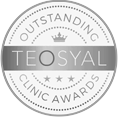We all crave beautiful youthful skin, wonderfully exaggerated eyelashes and lipstick that lasts a week – which is why we are so susceptible to often misleading marketing claims from major cosmetic houses. The fact is, ‘too good to be true’ claims do serve to get attenclaition but they often border the point of absurdity and leave us wondering just how the brands get away with it. Drawing on all our research within this industry, we debunk three of the cosmetic world’s biggest claims so that you can be a totally savvy shopper.
Hypoallergenic
Ponder on the word “hypoallergenic” and what do you think of? Perhaps a product that is kinder, less likely to cause a reaction and overall better for sensitive skin? You’d be forgiven for thinking this, it’s the picture that marketing companies try to paint and yet it isn’t true. The fact is, there is no industry testing method to determine if a product is determined as “hypoallergenic”. There is no list of restrictive ingredients, guidelines, regulations, rules or any kind of procedures that are put in place to categorise a product as hypoallergenic or non-hypoallergenic.
If you want more proof, know that the US branch of the FDA (food and drug administration body) say:
“There are no Federal standards or definitions that govern the use of the term hypoallergenic. The term means whatever a particular company wants it to mean.”
The solution: Stop shopping for “hypoallergenic” labelled products and start looking at ingredients. Our tips are to avoid ingredients that are known to aggravate skin; these include fragrances (including plant oils like rose, mint, citrus and lavender), denatured alcohol and sodium lauryl sulfate. All these ingredients are widely acknowledged to contain skin-sensitising ingredients and yet they are widely used in many “hypoallergenic” products.
Dermatologist-Tested / Dermatologist-Approved
This claim looks like it carries weight, but it’s actually emptier than it seems. “Dermatologist-Approved” doesn’t reveal much, after all the dermatologist could be on the payroll of the company and will, therefore, be inclined to approve everything. Plus, no one sees the criteria by which products were approved. The same goes for the “dermatologist-tested”, without knowing how a test was done (or the results!) simply saying it was “tested” means nothing.
The solution: Stop buying into products simply because of the claims made by a dermatologist. Instead, if you do want products that are specifically endorsed by a professional – book an appointment with a dermatologist and ask their opinion, face to face.
Non-Pore Clogging
The new jargon on the market is “non-comedogenic” or “non-acnegenic” which are terms used to imply that a product lets skin breath, doesn’t cause blocked pores and does not provoke acne. However, just like the “hypoallergenic” hype, there is no regulatory standard which determines if a product achieves this. The danger? Well, without a guideline in place even the oiliest, thick moisturiser can claim that it’s non-pore clogging.
The solution: This one is harder to navigate, but as a general rule – the thicker the product, the more likely it is to bung up those pores. Look for products in serum, liquid or gel form or which have a water or lotion consistency.

















